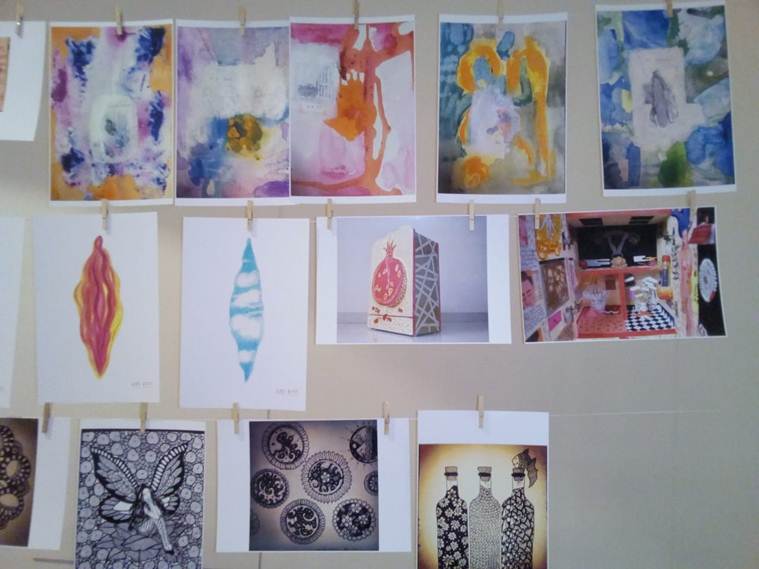Apart from physical health and well being of women, the event conducted a number of sessions of, mental health, sexual harassment, abortion, infertility, legal well being of women as well as sanitation requirements of disabled women.
“The idea of this event is to look at women’s health in various ways, not just through technology and medicines, but through art, handicrafts and poetry.” Swarnima Bhattacharya sums up FemmeCon, India’s first women’s health festival. The day-long event held on Sunday at the National Crafts Museum in New Delhi’s Pragati Maidan saw discussions on various aspects women’s sexual, mental and reproductive health, as well as conversations around topics of self care and pleasure.
Attracting close to 200 visitors including women and men of various age groups, FemmeCon opened a platform where important questions were raised, several myths broken, doubts clarified and interesting revelations made. “I had numerous doubts in my mind about what kind of products to use during my menstrual cycle. I had my first period when I was nine and since then have faced irregularity in the cycle. These are some of the issues I wanted to understand,” says Passang Dolma, a third-year student of Ramjas college, who found out about the event on social media.
Forty-two-year-old architect, pre-school teacher, and photographer, Leena Bhalerao, on the other hand, decided to attend the event to find solutions to her concerns of menopause. “I am forty-two and my mother stopped menstruating at 47 so I was wondering what kind of care I should take to prolong my menstruation,” she says adding that her interest in the event was ignited when she read about the session on premenopausal health.
Conversations on menstruation at the event focused on a range of issues including the kind of products that can be used, the need to bridge the gap between traditional methods and modern technology, as well as hygiene. “There has been an entire shift in rural areas to the sanitary pad because of government policies, but nobody is discussing how they will be disposed off. For me, sustainability of a technology is an important factor,” says gender rights activist Srilekha Chakravarty. Contributing to the conversation on products to be used during menstruation, Bhattacharya, founder of Thea care: Women’s health companion, says “there are many alternatives for hygiene. It is not a privilege our mothers had and we need to choose a product depending on our conditions.”
The session of chronic women’s diseases like PCOD and endometriosis was presided over by Dr. Anjali Ahuja who discussed at length the symptoms of these conditions, the kind of precautions necessary and the kind of lifestyle choices that is leading to these diseases becoming more common over the years. “PCOD is a lifestyle disorder. When I treat a patient of PCOD, my first line of advice is weight reduction and so is the second and third. It is only at the fourth stage that I suggest medication,” she says.


Apart from physical health and well being of women, the event conducted a number of sessions of, mental health, sexual harassment, abortion, infertility, legal well being of women as well as sanitation requirements of disabled women. “Before coming here, I was mostly interested in menstrual health and hygiene, but the session on the sanitation requirements of disabled women was an eye-opener to me,” says 18-year-old Neetika Kamboj who is a first-year student at Lady Irwin college.
The festival organised by Thea Care celebrated women’s health through an artistic lens, with comic strips, paintings and crafts discussing aspects of women’s health care being exhibited. Poetry and other cultural performances provided a touch of fun and frolic to the idea of discussing and reflecting upon the well being of women.
Must Watch


Motorola One first look at IFA 2018: A new Android One device


Stree: Public Verdict


IFA 2018: Motorola One Power first look, launches in India in October


Kerala Floods: How The River Damaged My Hometown
Source: Read Full Article
